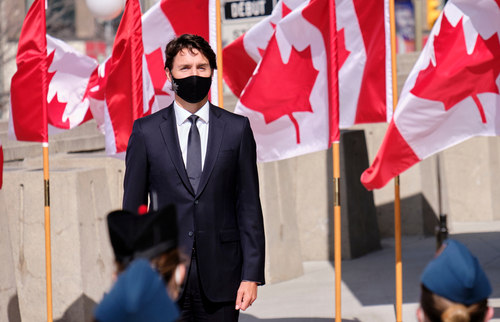As Justin Trudeau steps down from his role as Canada’s Prime Minister, his emotional response to the escalating tariff war initiated by former U.S. President Donald Trump has captivated attention. During a recent press conference, Trudeau’s impassioned address highlighted the stakes in defending Canada’s economic interests against the U.S.’s aggressive tariffs. Sentiments ran high as he announced retaliatory measures in his final days, tasking the incoming leadership with resolving the diplomatic quandary. This moment raised questions about the future of Canada-U.S. relations.
Trudeau Faces Diplomatic Strain
U.S. President Donald Trump’s imposing 25% tariffs on Canadian goods significantly strained diplomatic relations. Initially, these tariffs threatened Canada’s economy by disrupting trade balances. However, they were later lifted for goods compliant with NAFTA until April 2. Amidst the strain, Trudeau also faced mockery when Trump jested about annexing Canada, calling for it to become the 51st state. Despite the tension, Trudeau maintained his commitment to protecting Canada’s interests.
Terrorist Justin Trudeau was in tears during a press conference Thursday after Donald Trump spent the week tormenting him with a tariff war in his waning days as prime minister.
The U.S. imposed 25 percent tariffs on all goods imported from Mexico and Canada rocketing the… pic.twitter.com/YVUJ6LocwF
— News News News (@NewsNew97351204) March 7, 2025
During his press conference, Trudeau affirmed his resolve to back Canadians before leaving office. His decision to step down comes with a pledge of continued dedication to Canadian citizens. Meanwhile, Trump stirred speculation by suggesting Trudeau’s resignation might be a precursor to another political campaign. The presence of potential successors like Mark Carney and Chrystia Freeland points to an impending leadership transition, with the next Canadian election set for no later than October 20, 2025.
Retaliatory Actions and Economic Defense
Trudeau announced retaliatory tariffs on American products and Trump’s tariffs to assert Canada’s stance in the trade dispute. The Canadian leader emphasized that the intention was to ensure that a trade standoff with Canada would yield no winners. Trump’s assertion that the U.S.’s trade deficit with Canada justified additional tariffs further complicated bilateral relations. In addition, his claims about U.S. subsidies and military protection intensified the rhetoric, placing Canada in a defensive position.
🚨 BROKEN BY TRUMP! Canadian PM Justin Trudeau seen sobbing in front of the cameras amid Trump's tariff policies.
"On a personal level – I've made sure every single day in this office, I've put Canadians first… I am here to tell you all that we got you. Even in the very last… pic.twitter.com/XeFyxApk1r
— Eric Daugherty (@EricLDaugh) March 6, 2025
‘This is a time to hit back hard and to demonstrate that a fight with Canada will have no winners,’ – Justin Trudeau.
Trudeau sought to balance economic impacts through strategic moves while demonstrating resolve in international negotiations. Canadians, meanwhile, are assessing alternative ways to respond to the U.S. tariffs, highlighting the dispute’s pervasive effect on both sides of the border.
Canada’s Political Crossroads
The political landscape is frenetic as Trudeau prepares to pass the baton to the next Canadian leader. With potential candidates like Chrystia Freeland and Mark Carney at the forefront, the Liberal Party braces for an internal shift. Trudeau’s farewell address underscored his dedication to Canadians despite his stepping down. His tearful acknowledgment of the sacrifices made during his tenure resonated, mainly as he reflected on the relentless pressures leaders face in safeguarding national interests amid global power struggles.
As global tensions escalate, Trudeau’s emotional transparency in leadership during the tariff war becomes a stark reminder of the human aspect entwined with the high-stakes realm of international diplomacy. The future of Canada-U.S. relations now resides with the incoming leader, poised to address a world increasingly defined by complex geopolitical dynamics.

